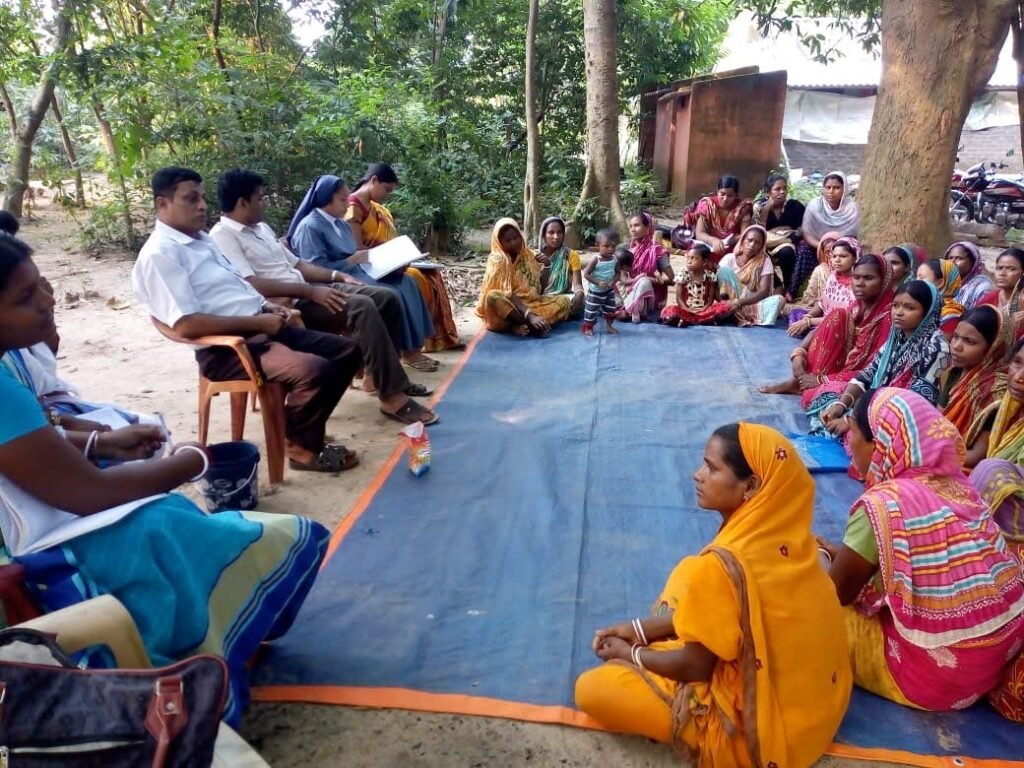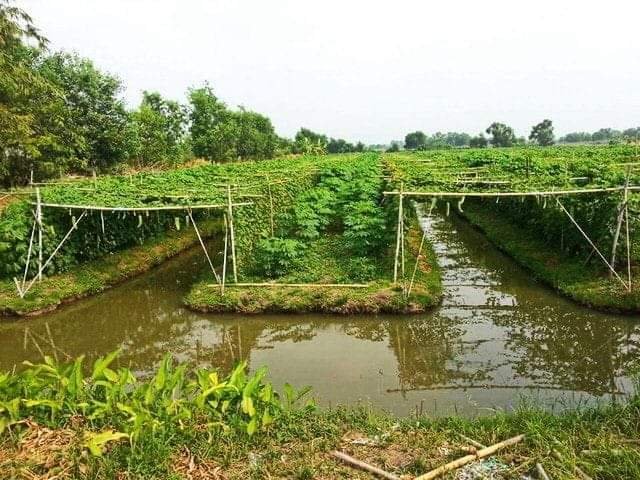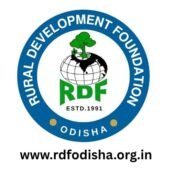RURAL DEVELOPMENT FOUNDATION (RDF)
OUR
ACTIVITIES

Gender Equity
Gender Equity refers to the fair treatment, access, opportunities, and advancement for all genders, while addressing historical and social disadvantages that have marginalized certain groups, particularly women and non-binary individuals. Unlike gender equality (which focuses on equal treatment), equity recognizes that different genders may need different levels of support to achieve true fairness.
Gender equity benefits everyone—leading to stronger economies, healthier communities, and more innovative societies. True progress requires policy changes, education, and challenging unconscious biases in everyday life.
Public Amenities
Public Amenities are facilities and services provided by the government or local authorities for the benefit and convenience of the community. They are designed to improve the quality of life of residents and visitors by offering access to essential services, recreation, education, health, and social infrastructure.
Public amenities are essential community resources provided and maintained by public authorities to ensure convenience, comfort, health, education, recreation, and social welfare for all citizens. They play a vital role in building inclusive, healthy, and vibrant communities.


Climate Action
Climate Action refers to efforts taken at local, national, and global levels to combat climate change by reducing greenhouse gas emissions (mitigation) and adapting to its impacts (adaptation). It is a critical part of sustainable development and is enshrined in international agreements like the Paris Agreement (2015), which aims to limit global warming to well below 2°C (preferably 1.5°C) compared to pre-industrial levels.
Climate action is not just a government responsibility—it requires collective effort from businesses, communities, and individuals. The window to avoid catastrophic warming is closing, but solutions exist if we act now.
Health and Nutrition
Health and Nutrition are closely linked—what we eat significantly impacts our physical, mental, and emotional well-being. Proper nutrition helps prevent chronic diseases, boosts immunity, and supports overall vitality. Good nutrition is the foundation of a healthy life. Small, consistent changes—like eating more vegetables, reducing sugar, and staying active—can lead to long-term benefits.


Herbal Gardening
Herbal Gardening involves cultivating a dedicated space—whether a garden bed, containers, or even a small indoor setup—for growing herbs and medicinal plants. These gardens can serve culinary, medicinal, aromatic, or ornamental purposes and are valued for their health benefits, ease of care, and contribution to biodiversity Start small with 3–5 easy herbs (e.g., basil, mint, chives) 9.
- Label plants to track growth habits and needs 1.
- Involve kids or seniors—herb gardening is a fun, educational activity
Science and technology (S&T) in Farm Sector
Science and technology (S&T) have become central to modern agriculture, transforming the way food is produced, managed, and delivered. Their role spans from increasing productivity and sustainability to addressing environmental and resource challenges.
Science and technology are driving a revolution in the farm sector, making agriculture more productive, sustainable, and resilient. From precision farming and biotechnology to digital data platforms and smart irrigation, these innovations are essential for meeting global food needs and ensuring the long-term health of agricultural ecosystems.


Languishing Lacquer Craft
Lacquer Craft—the art of applying colored lac (a resin derived from insects) to wood or other materials—has a long and distinguished heritage in India and across Asia. Traditionally, this craft produces vibrant, kaleidoscopic patterns on objects like toys, bowls, and decorative items. However, in recent years, lacquer craft has been classified as a languishing craft in several regions, reflecting its decline due to various socio-economic and cultural pressures.
Targeted interventions—government support, market development, and community engagement—are essential to ensure its survival. Reviving this craft not only preserves a unique artistic heritage but also supports the livelihoods of artisan communities.
Legal Literacy for Women
Legal Literacy for Women refers to the awareness and understanding of legal rights, entitlements, and the processes for accessing justice. It is a crucial tool for empowering women, enabling them to protect themselves from discrimination, abuse, and exploitation, and to actively participate in society.
Legal literacy is a foundational step toward women’s empowerment and gender justice. While progressive legislation exists, its benefits can only be realized if women are aware of their rights and know how to exercise them. Sustained efforts by government, NGOs, educational institutions, and community networks are essential to bridge the legal literacy gap and enable women to lead independent, empowered lives.


Tribal Cultural Conservation
Tribal Cultural Conservation refers to the protection, preservation, and promotion of the unique cultural heritage, traditions, languages, and practices of tribal communities. These efforts are crucial for maintaining India’s rich cultural diversity and ensuring the well-being and identity of tribal populations.
Tribal cultural conservation in India is a multi-faceted effort involving documentation, community engagement, education, legal protection, and promotion of traditional arts. While significant progress has been made through government and community initiatives, ongoing challenges require sustained attention, stronger policy enforcement, and greater public awareness to ensure the vibrant survival of tribal cultures for future generations.
Gandhian Constructive Work
Gandhian Constructive Work refers to a set of nonviolent, grassroots initiatives envisioned by Mahatma Gandhi to transform Indian society and achieve poorna swaraj (complete independence) through truthful and nonviolent means. Gandhi saw constructive work as essential not only for India’s freedom from colonial rule but also for building a just, self-reliant, and harmonious society.
Gandhian constructive work remains relevant as a blueprint for holistic development, emphasizing nonviolent change, community participation, and the upliftment of the most marginalized. While not all aspects were fully realized, the approach continues to inspire efforts toward social justice, rural development, and communal harmony in India and beyond.


Livelihood and Skill Development
Livelihood and Skill Development refers to the process of equipping individuals—especially from marginalized or rural backgrounds—with the knowledge, practical abilities, and resources needed to secure sustainable income and improve their quality of life. These initiatives are vital for poverty reduction, economic empowerment, and inclusive growth.
Livelihood and skill development are foundational for building self-reliant individuals and resilient communities. Through a combination of technical training, entrepreneurship support, and community mobilization, these programs help bridge the gap between unskilled labor and meaningful employment, fostering inclusive and sustainable growth across India.
Family Counseling Centre (FCC)
Family Counseling Centres (FCCs) are specialized institutions established to provide counseling, referral, and rehabilitative services primarily to women and children who are victims of domestic violence, family maladjustment, social ostracism, or other forms of distress. The scheme was introduced by the Central Social Welfare Board (CSWB) in 1983 and operates with support from the Ministry of Women & Child Development, Government of India.
FCCs play a critical role in supporting vulnerable women and families, resolving family disputes, preventing violence, and promoting social welfare. They serve as a bridge between distressed individuals and the broader support system, contributing to the empowerment and rehabilitation of victims.


National Environment Awareness Campaign (NEAC)
The National Environment Awareness Campaign (NEAC) is a flagship initiative of the Ministry of Environment, Forest and Climate Change, Government of India. Launched in 1986, its primary objective is to raise environmental awareness among the public and promote sustainable practices to encourage environmental conservation and make environmental protection a people’s movement.
The National Environment Awareness Campaign (NEAC) is a nationwide initiative to educate, engage, and empower citizens for environmental conservation, making protection of the environment a collective and ongoing movement across India.
Sector Reform Project (Pani Panchayat)
The Sector Reform Project (Pani Panchayat) is a participatory irrigation management (PIM) initiative, primarily implemented in Odisha, aimed at decentralizing the management of irrigation systems by involving local farmers directly in water governance and distribution. This model is designed to improve efficiency, equity, and sustainability in water use for agriculture.
The Pani Panchayat model under the Sector Reform Project represents a significant shift toward decentralized, community-based water management in India. By empowering farmers, promoting equity, and improving resource management, it aligns with sustainable development goals and offers a replicable model for participatory governance in the irrigation sector.

